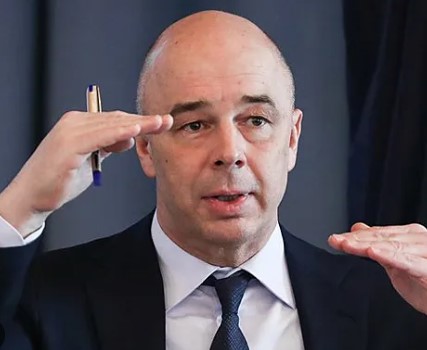Putin has authorized the use of US property to compensate for asset seizures.

Russian courts have been granted the right to use American property in Russia to compensate for damages from the seizure of Russian assets in the United States , according to a decree issued by President Vladimir Putin.
This concerns movable and immovable property of the United States, American companies and citizens located on the territory of Russia, as well as securities belonging to them, shares in the authorized capital of Russian companies and other property rights of the United States and Americans in Russia.
According to the decree, a Russian property owner, represented by the state or the Central Bank, in the event of confiscation of this property in the United States, has the right to file a petition with the court requesting a determination of "unjustified deprivation of their property rights" in the United States. If the court upholds the petition, it requests a list of U.S. property in Russia from the government's Foreign Investment Review Commission.
The commission then identifies U.S. property that, "taking into account the principle of proportionality, may be used to compensate for the damage." "A [court] decision establishing the fact of unjustified deprivation of a Russian rights holder's rights to property and to compensate for the damages provides for the termination of the rights to the U.S. property or the U.S. person included in the list, and the subsequent transfer of these rights to the Russian rights holder for the purpose of compensating for the damages," the presidential decree states.
What Russian assets are we talking about?Following the start of the military operation in Ukraine, Western countries froze the Russian Central Bank's international reserves in the form of cash and securities, amounting to approximately €260 billion, in late February 2022. More than two-thirds of these are held in Belgium's Euroclear. In 2022, the Russian Ministry of Finance estimated the frozen assets at approximately $300 billion. The US Department of Justice announced the seizure of $500 million in assets belonging to Russian businessmen, but did not disclose the amount of Russian state assets frozen in the US.
According to the US Congress, US financial institutions hold $4–5 billion in Russian Central Bank assets. In April, US President Joe Biden signed the REPO Act , which allows for the confiscation of Russian sovereign assets under US jurisdiction (including the assets of the Bank of Russia), in whole or in part. The document stipulates that such a decision is not subject to judicial review, except in cases of alleged deprivation of rights guaranteed by the US Constitution. American legal experts are divided on whether Russia has constitutional rights in the US that could prevent the confiscation of its assets. Moscow condemns Western sanctions . This week, the European Union decided to confiscate income earned by Western depositories by investing frozen Russian assets, although the assets themselves and their income (coupons and dividends) are not affected by this measure.
The Kremlin noted that the confiscation of Russian assets would be "a solid nail in the future coffin of the entire Western economic coordinate system," as well as "the subject of certain retaliatory actions and legal proceedings." "If such a decision [to seize Russian assets] is made, then an absolutely symmetrical response will follow from the Russian Federation. We also have sufficient assets frozen here, also in so-called C accounts, these are our obligations on securities, dividends, those that constitute our obligations to foreign counterparties from unfriendly countries," Finance Minister Anton said in December.Siluanov . Deputy Finance Minister Alexey Moiseyev previously stated that the volume of non-resident funds in Type C accounts (where coupons and dividends on Russian securities held by non-residents are deposited) is comparable to Russia's frozen assets.
Why is a decree on a mechanism for compensation for damages necessary?The new presidential decree aims to create a mechanism in Russia through which Russian courts, with the assistance of the government commission for control over foreign investment, will be able to identify the assets of American individuals in Russia and, using these assets, compensate the value of Russian assets if they are lost by decision of US government agencies or courts, says Boris Romanov, project manager at the law firm S&K Vertical. He emphasizes that the decree establishes restrictions on who is entitled to compensation for such losses: only the Central Bank of Russia or the Russian Federation itself (i.e., the state).
"It is quite likely that the adoption of this decree, among other things, is aimed at preventing (anticipating) the possible confiscation of the Central Bank's assets by US government agencies," Romanov believes.
The decree contains a broad list of persons whose property may be subject to foreclosure: any persons or organizations that are directly or indirectly associated with US jurisdiction, notes Forward Legal lawyer Oles Gruzdev. “This means that the conditionalAPPLE Inc., which could theoretically have shares in Russian companies, could lose its shares based on this decree,” he points out.
The question of whether the property of Russian companies, subsidiaries of US companies, could be included in this list is ambiguous, Gruzdev believes. On the one hand, no, since a Russian company is subject to Russian laws. On the other hand, it's possible that a court might find that, due to the absolute control of an American entity over a Russian company, the latter is de facto acting as a US entity, and foreclose on its property. "Nevertheless, I currently believe the likelihood of such a development is unlikely," the lawyer emphasizes.
Since special accounts (including Type C accounts) contain a large volume of assets belonging to foreign individuals, including those from the United States, it cannot be ruled out that Russia could use these assets to satisfy its claims in the event of the confiscation of its reserves in the United States, suggests Gruzdev.
The decree, which allows for compensation for damages caused to the Russian Federation and the Central Bank, sets the stage for a precedent allowing for compensation for such damages to be obtained from property owned by the United States and U.S. persons (including private individuals), subject to the procedure stipulated by the decree, says Victoria Bortkevich, Global Managing Partner of Better Chance.
The relevant court decisions will likely specify the amount of damages, as well as movable and immovable property in Russia belonging to the United States or US persons, as well as shares, stakes in the authorized capital of Russian companies, and corresponding property rights, to be transferred (as compensation for damages), she concludes.




























































